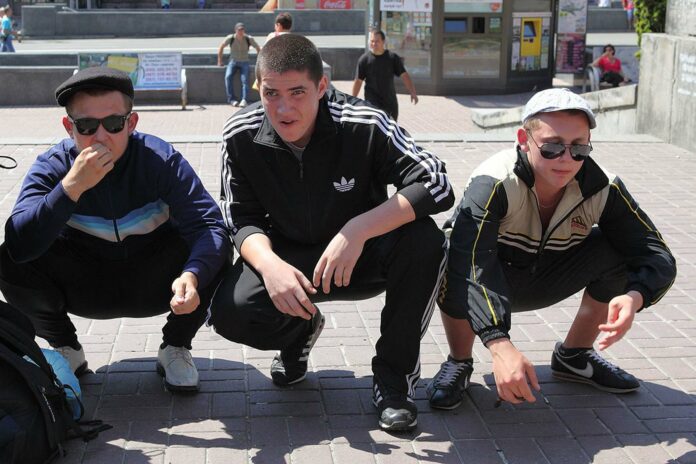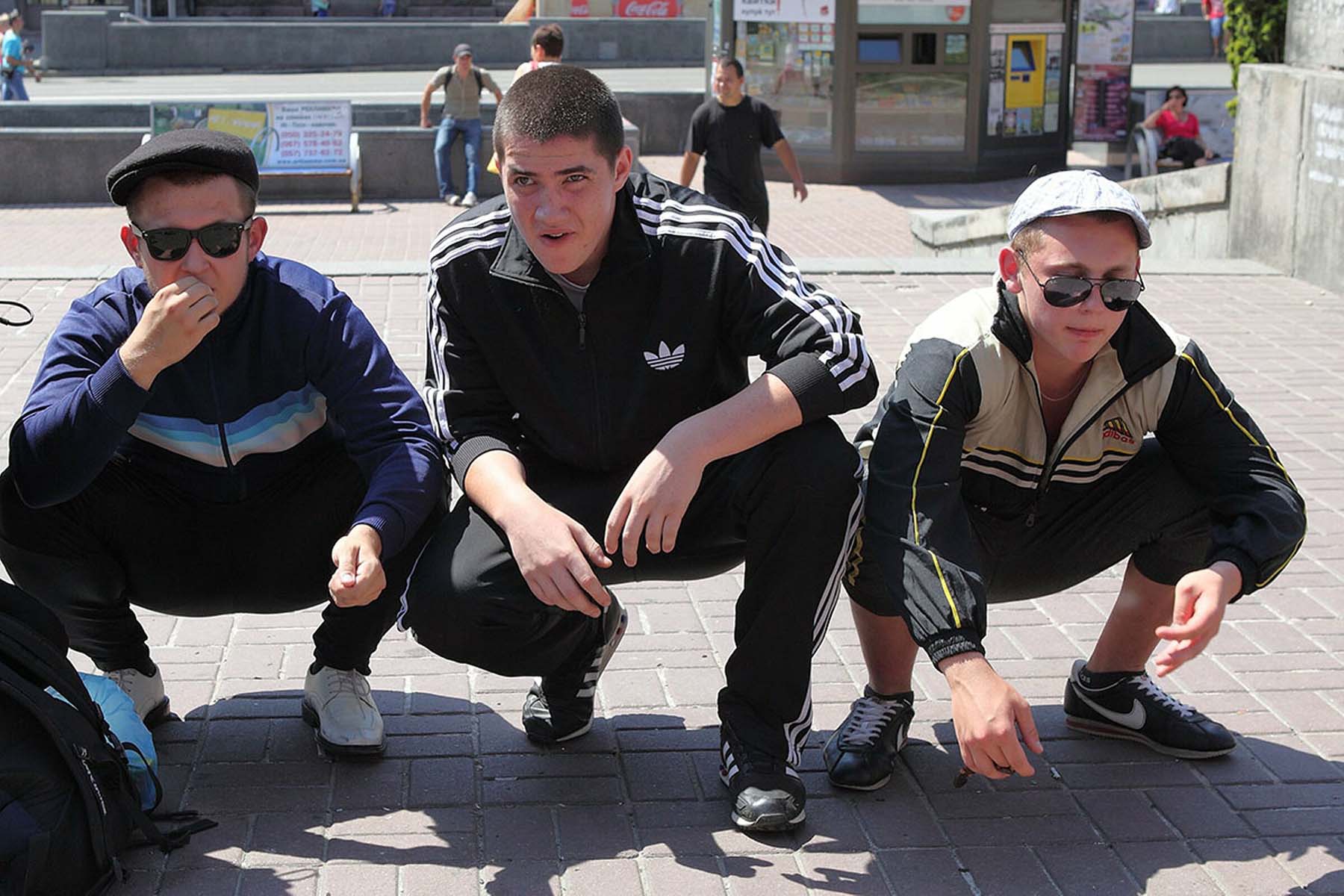Russian-American relations are looking more and more like a high-school rivalry between a dumb-ass bully and an intelligent boy from a good family who does not like to fight. The leader of the local scum realizes he is incapable of pleasing his classmates, so he tries to keep them in fear by waving his fists.
The point of Vladimir Putin’s foreign policy is to assert himself in the international arena. Inheriting the Soviet tradition, and realizing that authoritarian Russia is close only to rogue states, the Kremlin leadership is trying to make the outside world if not respect it, then at least fear it.
Such a style of behavior is easy to explain. Confrontation is the only thing that can somehow justify this endless usurpation of power by Vladimir Putin. The so-called hostile environment and the image of Russia as a “besieged fortress” provide an excuse for emergency measures and the ban on political competition. In Soviet times, such a “threat” was the capitalist world, and then NATO. The scant imagination of the current Kremlin leadership was only enough to repeat stale Soviet stereotypes: NATO is Russia’s main enemy again.
The idea of confronting the whole world and protecting “offended Russia” materializes in two ways. The hard way consists of military operations in places where effective countermeasures are not expected. The soft method consists of endless negotiations whose purpose isn’t to find an acceptable solution, but to continuously build up tension and keep the situation in limbo. The current Russian authorities are skillfully using both instruments.
The recent agenda included talks with the United States in Geneva, with NATO in Brussels, and with the OSCE in Vienna. Negotiations were not supposed to end with anything positive. They are simply a way for Russian authoritarianism to assert itself on the international stage. Russian requirements were obviously unacceptable for the West, both in form and in substance: an ultimatum, creation of spheres of influence, deciding the fate of other countries behind their backs, an emphasis on willingness to use military force.
On top of this, some Russian officials resorted to a swaggering tone of street punk: “So NATO should pack its shit and head for the borders of 1997”. (Sergey Ryabkov, head of the Russian delegation at the Geneva talks).
Vladimir Putin’s authoritarian regime, seeking to expand its influence, will never allow international peace and tranquility: in such an atmosphere, it will simply perish, as a fish thrown onto shore. Therefore, any concessions from the West will only lead to an escalation of demands and new threats.
This escalation will go on, until the Kremlin encounters persistent and clear resistance. As happened during the Berlin crisis of 1961, when Soviet tanks were withdrawn from the border separating the eastern and western parts of the city. As happened also during the Cuban Missile Crisis a year later, when Soviet nuclear-armed missiles were dismantled and removed from Cuba under threat of war with the United States. If there is no such resistance, we might soon be confronted with a full-fledged war.
However, the West, like an intelligent boy from a good family, tries to reason with a raging classmate, but isn’t ready to confront him with an adequate response. At times he is even seduced by the benefits of friendship with the bully, getting what he needs from him at a cheap price. He covers his indecisiveness and even his pliability behind a screen of negotiation: we look for common ground and try to agree on what we can agree on. This is the credo of professional negotiators.
It is very likely that such an attitude would soon lead the West to recognize Russia’s right to defend itself against NATO and to fight against the “hostile environment”. Putin’s dream of a bipolar world would come true. Meanwhile, the interests of democratic Russia lie not in hostility toward western democracies, but in cooperation with them. Not in confrontation with NATO, but in joining it. Not in isolation from the international community, but in broad and benevolent cooperation with it.
Many members of the Russian political elite are well integrated into western life. High-ranking Russian officials, politicians, and their propaganda servants own real estate in western countries, keep their savings in western banks, invest money stolen from the Russian budget into the western economy, and their children attend expensive and prestigious western schools and universities. In private life, these people are not enemies of the West. But they need to keep their country, Russia, in a continuous state of emergency, awaiting war and siege, because it is the only way they can ensure their own well-being and their families’.
The Kremlin has now chosen the right moment for a military-political escalation. The weakness of the US administration, combined with European interest in Russian gas, gives Putin a chance to succeed in his hard line policy. Open support for the Belarusian dictator, a show of muscle near the Ukrainian border and repression of the Russian opposition are pretty good illustrations of the Kremlin’s determination to end negotiations with war since they failed to end with a diplomatic victory.
The dramatic events in Kazakhstan also came just in time; now it seems that everyone has finally realized that Vladimir Putin and his satellites will not hesitate to use military force if their authoritarian brotherhood’s interests are infringed upon in the post-Soviet space. This was so well understood by the West that NATO Secretary General Mr. Stoltenberg made it clear to Moscow at a meeting in Brussels that if Russia attacks Ukraine, NATO will not enter into an open conflict because Ukraine is not a member of the alliance and it is not subject to collective security guarantees. And this is the most important thing for the Kremlin — guarantees of non-interference untie the hands of the aggressor.
Moscow has already been informed about the high price to be paid for its aggression against Ukraine, but no one in Russia is impressed by this. In the past, no sanctions or “decisive measures” have prevented the Kremlin usurpers from annexing Crimea and controlling large parts of Georgia, Moldova and Ukraine.
For years, all these threats and serious promises of Western politicians have been perceived in Moscow with humor. It is likely that the Kremlin is even pleased with them, since they increase both the degree of confrontation and Russia’s status as the “bad guy” in its negotiations with the West. If the Russian regime is convinced negotiations are the only way for western democracy to respond to the challenges of authoritarianism, it might wish to commit new “exploits” in various parts of the world.
Alexander Podrabinek is a Russian independent journalist and former Soviet political prisoner. Involved in the democratic movement in the USSR since the early 1970s, he particularly investigated the use of psychiatry for political purposes. Tried twice for "defamation" for his books and articles published in the West or circulated in samizdat, he spent five and a half years in prison, in labor camps, and in exile. His most well-known book is "Punitive Medicine," available in Russian and English. He is a columnist and journalist for several media outlets, including Novaya Gazeta, RFI, Radio Liberty, and others.




